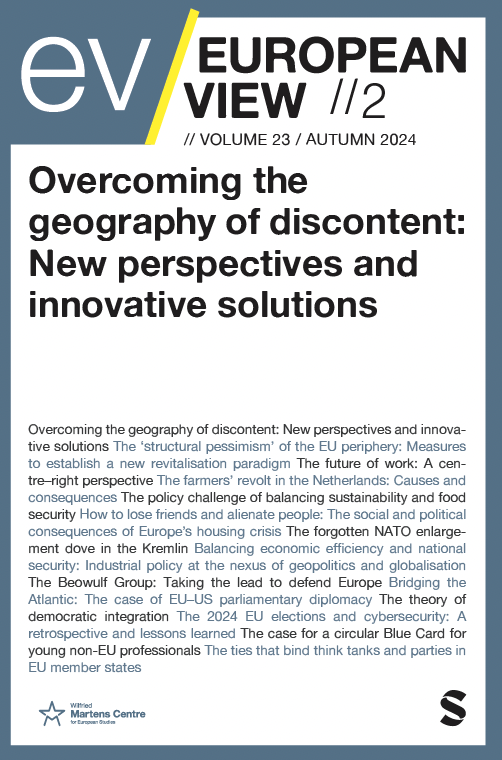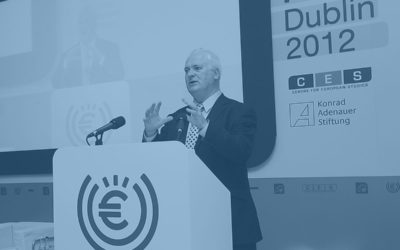The Quest for a European ‘Soul’?
05 October 2021

The State of the Union Address remains the most important annual statement by the European Commission. Yet, despite being broadcast on all the national television stations of Europe, it fails to generate the same level of enthusiasm (and newspaper column inches) as its equivalent speeches in the United States and Russia.
Its theme – “Strengthening the soul of our Union” – is reminiscent of the nation-building rhetoric popular in the mid-19th century. Ursula von der Leyen identifies shared common values such as democracy, the rule of law, the safeguarding of the free and independent media, and the right to live in a society free from corruption. She draws parallels between past and present.
She cites Robert Schuman’s vision of a European “soul”, “ideal”, and “political will to serve the ideal” and argues that this has been fulfilled in the bloc’s recent response to the pandemic. In other words, she presents the European Union not necessarily as something innovative and new, but as the embodiment of universal values which were always present in the continent.
Such rhetoric makes for a fascinating academic analysis, yet it achieves little if not accompanied by tangible actions.
Some initiatives are likely to generate some enthusiasm for Europe. Citing Jacques Delors, “How can we ever build Europe if young people do not see it as a collective project and a vision of their own future?”, von der Leyen announced the 2022 Year of European Youth.
In addition, the Erasmus-style ALMA scheme will allow young people from member states of the EU to find short-term work placements in other EU member states. Its aim is twofold: providing some respite to unemployed youth and allowing young people to build a network of connections across the bloc. In other words, it aims to foster a greater feeling of being European.
In this regard, the Conference on the Future of Europe also aims to encourage a deliberative and participative approach to Europe. Here, the President of the EU Commission took a more cautious approach. She expressed her hope that youths would lead the debate and committed the Commission to follow up on what the Conference agreed.
It is doubtful that these measures will be enough, or whether they should be a priority given the current situation.
The EU is emerging stronger from the pandemic. Despite some hitches at the onset of the pandemic, the vaccine rollout has been broadly successful. Moreover, the President of the EU Commission rightly recognised the geopolitical significance of vaccines, the necessity to cushion the economic fallout of the pandemic, and the need for solidarity within Europe. Indeed, the post-pandemic reconstruction can be a practical exercise in solidarity-building and, indirectly, in identifying this mythical “soul” of Europe.
Nonetheless, the situation is both an uphill struggle and an opportunity that could easily go unexploited. According to the Spring 2021 Eurobarometer survey, 33% of respondents knew of the EU measures relating to the COVID-19 pandemic; 52% of those were not satisfied with the measures taken so far. More encouragingly, while 57% of respondents declared themselves unhappy with the current state of solidarity within the EU, 69% agreed that the EU requires more competencies to deal with crises such as the pandemic.
There are other measures announced in this speech where consensus will be harder to achieve. For example, the much-touted Green Deal will involve considerable infrastructural investment and will undoubtedly lead to an increase in energy prices. Attempts to increase competencies in taxation issues will be vehemently opposed by some member states. Debates on the Future of Europe need to be broader and more realistic in their aims.
Perhaps, what Europe needs at the moment is less “soul” and more realism. The debates about the future of Europe tend to be theoretical and abstract. Whether there is “more Europe” or “less Europe” may mean very little in situations of mass unemployment and higher energy prices. Moreover, though a focus on youth is appropriate, Europe has an ageing population that finds it harder to engage with the European project. Unless these debates are grounded in realism, they may serve to drive an even greater wedge between the European Union and its citizens.
Image Credits: EPP Group
ENJOYING THIS CONTENT?





















